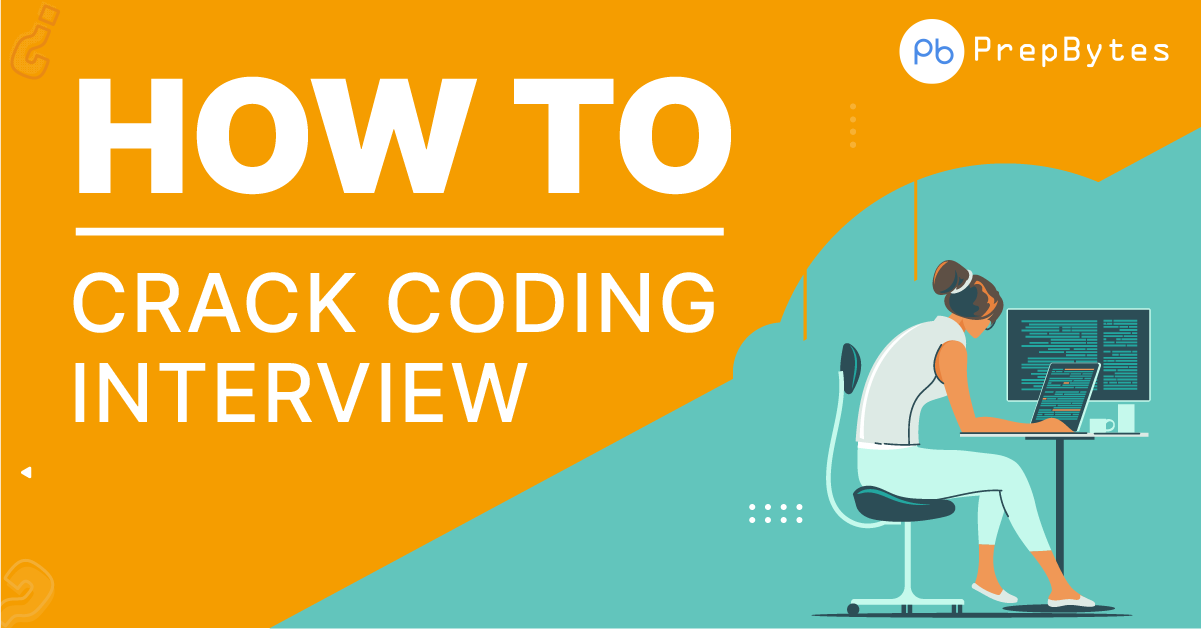How to crack coding interview
Whether you are a recent graduate or a job seeker, if you are searching for a job this article will help you to prepare yourself for the same. Most of the developer jobs require in-depth knowledge of programming in any language along with OOPs skills. Any tech stack will be an added advantage. But the most important is how to solve a problem with present data structures and algorithms.
In this article we will be discussing briefly about such interviews and how to crack them.
Generally, any software related interviews start with a coding round where your problem-solving skills are tested. These rounds require a strong knowledge of data structures and algorithms and hands on coding experience. To hail this round you probably want to start practising as many problems as you can on various sites like leetcode, hackerrank, hackerearth, interviewBit, PrepBytes company specific questions ,etc. I will also jot down some important topics for general practise –
- Arrays
- Linked List
- Stacks
- Queues
- Binary Trees
- Binary Search Tree
- Searching and sorting
- Graphs
- Heaps
These also include optimising your program to run through all the test cases as efficiently as possible. Once you have cleared this round you will be shortlisted for the further technical interview rounds based on your performance.
Technical Rounds are where your skill set will be challenged with sometimes pair programming or machine coding rounds. Here in this round recruiter gives you a problem statement and you have to solve them along with a proper explanation or thought process. Well, mostly only two or three questions are asked.
How to deal with this round then?
Well, be patient and understand the question first, do continuously ask questions to better get an idea of the problem. Most of the time the interviewer will be pretty helpful and will even walk through some of the test cases to give you some hint or idea. Treat this round very calmly and keep telling your thinking process to the interviewer, it can happen that you might not be able to solve a question but your process of thinking might help the interviewer get a glance of your problem-solving technique.
On the basis of this round, there might be another technical round or two more. The next round consists of resumes and theory concepts of CS fundamentals. To be honest, these rounds can be interchanged but the theme remains the same. In this round, the candidate is tested about their knowledge in basic CS fundamentals like OOPS, OS, DBMS, Computer networks etc. So, it’s always a good idea to brush up your concepts before this round. You may also be asked some design questions along with machine coding questions too. Do note that this round may include intense questions from your resume. Never try to exaggerate in your resume as in this round, you will be asked from in depth technical details of your project. You can always checkout PrepBytes blog for how to create an awesome resume to get you interview calls from your dream companies.
Most of the final interviews are generally managerial rounds or HR rounds. If you have made this far, give yourself a pat as you did quite a good job. In this round you are mostly asked about your behavioural sides, how you manage conflicts, if you are culturally fit for the role or not for the company. You may also be asked some basic questions of CS fundamentals in this round too. This round is not much though although it does include some of the trickiest questions like what is your plan after graduation or anything. I would suggest if you are really into getting this job then be honest to the interviewer and even if you have some unplanned higher study plans then it would best to avoid it.
I hope if you have made it this far, you well deserve it and hope for the best to get selected. Hope this article gives a brief idea of how you should plan to crack any coding interview.



